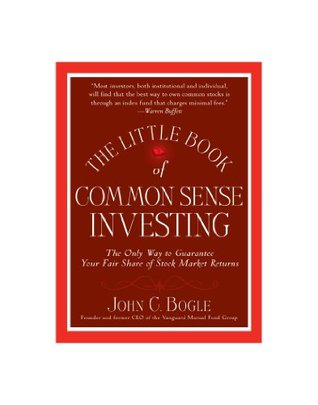

 |

|

The average rating for Malcolm Robinson on Short-term Futures Trading: New Opportunities in Direct Access Futures T... based on 2 reviews is 4 stars.
Review # 1 was written on 2015-08-15 00:00:00 Philip Fullman Philip FullmanWhat did I think? I'll get back to you in about 30 years. |
Review # 2 was written on 2009-12-14 00:00:00 mike sharrak mike sharrakAfter hearing so many references to John Bogle and his followers, the Bogleheads, I decided I had to read this book. The author, John Bogle, invented the index fund and founded Vanguard. I really liked this book; it's one of the better investing books I've read. It contains just the right amount of empirical evidence in the form of statistics, graphs, and charts to be convincing, but not eye-glazingly boring. To back up his assertions, he points to "the relentless rules of humble arithmetic." Bogle comes across as very experienced and intelligent. In case you find yourself questioning Bogle, the end of each chapter contains a "Don't Take My Word For It" where well-known investors agree with Bogle on the chapter's topic. Bogle's main point is that the best (most efficient) investment strategy is to buy and hold all publicly traded US businesses at a low cost. He recommends this very simple approach as a superior alternative to the incredibly complex array of specific investment options available today. He describes this as Bogle's Corollary: "Don't look for the needle in the haystack. Just buy the haystack!" This book is definitely worth a read for anyone investing in the stock or bond markets. Notes • The average annual total return on stocks of 9.6% has been created almost entirely by enterprise, with only 0.1% created by speculation. • Rely on Occam's Razor and keep it simple; buy a portfolio that owns shares in every US business and hold it forever. • "Where returns are concerned, time is your friend. But where costs are concerned, time is your enemy." • Index funds don't trade from security to security, so they tend to avoid capital gains taxes. • Stocks and stock funds suffer from reversion to the mean (RTM): the tendency of above-average performance giving way to average or below-average performance in the long term. Selecting a fund adviser • fee-based, not commission-based • fee <1% of assets Keep costs low • expense ratio • loads, AKA purchase or sales charges • turnover • taxes • Use index funds for bonds and money markets too. • Focusing on growth or value funds isn't worthwhile, because all sectors still revert to the mean. Stick with the total stock market. ETFs • Total stock market ETFs can replicate or improve on index funds, if held long-term • ETFs are often too narrowly focused • ETFs incur brokerage and trading costs • Only use ETFs to diversify portfolio The 2 sources of the superior returns of index funds: 1. The broadest possible diversification (eliminates all risk except market risk) 2. The tiniest possible costs Portfolio 95-100% Serious Money • 50-100% total US stock market index funds 0-5% Funny Money • individual stocks • actively managed funds Acceptable variations: • max 20% total international index fund • "modest amount" emerging markets • 10% value • 5% small cap Asset allocation rule of thumb: hold a bond position equal to your age, or your age minus 10%. |
CAN'T FIND WHAT YOU'RE LOOKING FOR? CLICK HERE!!!